Some people may look at Japanese knotweed as a beautiful, ornamental plant. After all, that's one of the reasons it was brought to the country in the first place! Planting Japanese knotweed on your property is forbidden for a number of reasons. However, when you realise how damaging Japanese knotweed can be, you'll probably wish you never considered planting it anyway.
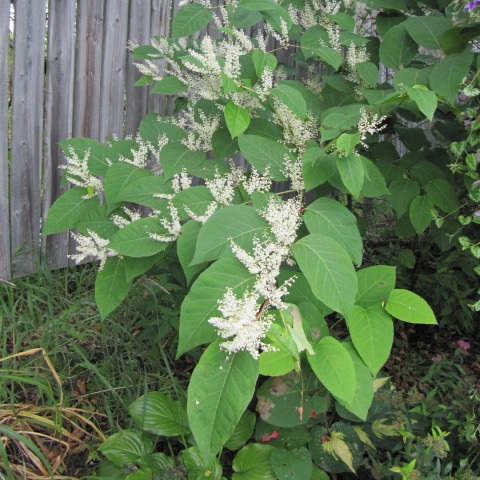
Photo by Leonora Enking (View Original)
You'll remember from our blog - What Damage Can Japanese Knotweed Do? - that Japanese knotweed can make it difficult to sell your home, can cause structural damage to buildings and roads and can even disrupt cables and block drains. This plant is likely to cause you a great deal of hassle, so why you'd want to plant it is a mystery!
More...
If you read our blog "When is the Best Time to Treat Japanese Knotweed?" you'll know that the plant prepares to die back in the autumn months by moving all its nutrients down into its rhizomes. Introducing the herbicide at this critical point in the weed's lifecycle will help ensure it doesn't re-emerge again in Spring.
But what does Japanese knotweed look like in winter? Well, like most plants, when the temperature in your garden plummets, they die back for the winter. Plants with rhizome systems like Japanese knotweed will preserve their energy and survive under the soil until more favourable conditions return.
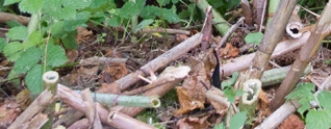
Japanese knotweed in winter becomes dry, brittle and brown. The stalks which were once red and purple and full of leaves have turned woody and bamboo-like. The canes are hollow and will collapse around each other as they die.
If the area hasn't been treated until this point, you can't guarantee that the knotweed won't come back stronger in a few months time. That's why swift Japanese knotweed treatment is always recommended.
Read more on Japanese Knotweed Identification
What should I do if I suspect I have a knotweed problem?
Whether you spot Japanese knotweed on your property is spring, summer or winter, it's vital that you get in touch with a professional removal company right away. You CANNOT rely on the winter months to take care of the knotweed problem for you.
We can survey your garden free of charge to find out if the plant you've spotted is actually Japanese knotweed. If it is, we'll be able to offer you a quotation for thorough removal, meaning the knotweed won't have a chance to spread around your property further.
Request a FREE Japanese Knotweed Survey
If you have any questions about identifying Japanese knotweed, or if you'd like to speak to our team about treatment, contact us today!
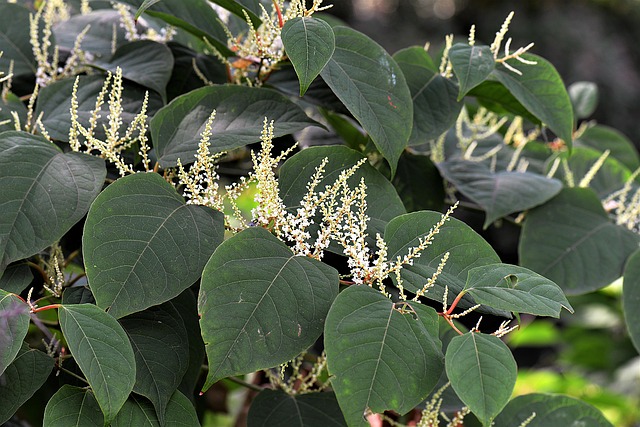
In previous blogs, we've spoken about the damage that Japanese knotweed can cause, the effect Japanese knotweed has on house prices and the persistence of Japanese knotweed that always seems to find its way back.
When you get to understand how much of a problem Japanese knotweed is, you begin to question - "Is it possible to eradicate Japanese knotweed permanently?"
It is sometimes possible to get rid of Japanese knotweed once and for all, but DIY methods are not the way to do it. We've heard stories of people tackling their Japanese knotweed problems with all kinds of home remedies including bleach and salt - none of which have done a good enough job to get rid of the troublesome weed for good.
Speak to the Professionals
With Japanese knotweed treatment, you can't afford to mess around. As we've mentioned, there are a whole host of reasons why Japanese knotweed needs to be dealt with properly. Not only can it cause structural damage, it can also make selling your home incredibly difficult.
Here at Total Weed Control, we offer comprehensive Japanese knotweed treatment packages that begin with a FREE consultation. Our technicians will visit the site and carry out an assessment of your Japanese knotweed problem.
From there, they can offer you a range of Japanese knotweed treatment options that are effective at killing the Japanese knotweed shoots and the root network underground.
Request a Free Survey Now >
Japanese Knotweed Guarantee
We know what you're thinking, how can you be sure that these Japanese knotweed treatments will eradicate the Japanese knotweed permanently? That's where our Japanese knotweed guarantees come in.
We offer a 5 or a 10-year guarantee with our Japanese knotweed treatment plans that ensures your home is kept Japanese knotweed free permanently after it's treated. Our specialist team will work with you for as long as you need, and can even carry out Japanese knotweed treatments as and when you need them if you find that the problem re-occurs.
If you have any questions about our Japanese knotweed treatments, please don't hesitate to give us a call on 029 2039 7554.
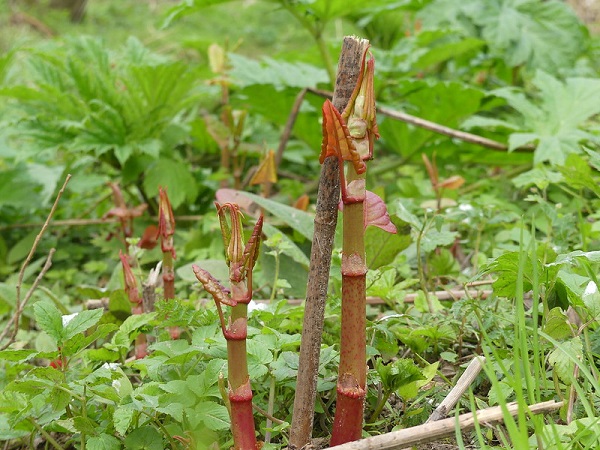
While there's never a good time to find Japanese knotweed on your property, there is an optimal time to treat it if you want to make sure it stays out of your garden all year round.
When planning Japanese knotweed removal, timing is key if you want your efforts to have the maximum effect. Treating weeds like Japanese knotweed at the wrong time of year will make the removal process harder and may even risk spreading the infestation further around your garden.
So, when is the best time to treat Japanese knotweed?
Although some people might argue that the best time to treat Japanese knotweed is in the spring / summer when it's growing most rapidly, we've found that the most effective time to treat Japanese knotweed with herbicides is after June, heading towards autumn. Here's why!
As summer turns to autumn, Japanese knotweed stops putting energy into growth and instead uses its energy to move sugars and nutrients down towards its underground rhizome structure. This is an important part of the plant's life cycle that helps it to survive the harsh winter months.
We take advantage of this shift in energy by applying specialist herbicides to the Japanese knotweed. The natural flow of nutrients enables the herbicide to penetrate deep underground and get at the rhizome (root).
Can I treat Japanese knotweed in spring / summer?
If you notice a developing Japanese knotweed problem, we'd always recommend getting a survey right away so that you can determine the right time and type of treatment for your specific case. Generally, we don't treat Japanese knotweed as much during the spring / early summer months because the herbicides can be less effective.
During this time, the Japanese knotweed is putting all of its available energy into pushing nutrients up to the leaves and flowers, so herbicide applications can kill off the top section of the weeds without really addressing the rhizomes underground.
What are my Japanese knotweed treatment options?
When it comes to treating Japanese knotweed, there are quite a few different options to choose from. Here at Total Weed Control, we offer a free no-obligation survey and a range of treatment plans to help you get your Japanese knotweed problem under control quickly.
Our Japanese Knotweed Treatment Plans >
We hope that this shed some light on the best time to treat Japanese knotweed. If you have any questions at all, don't hesitate to get in touch with our team.
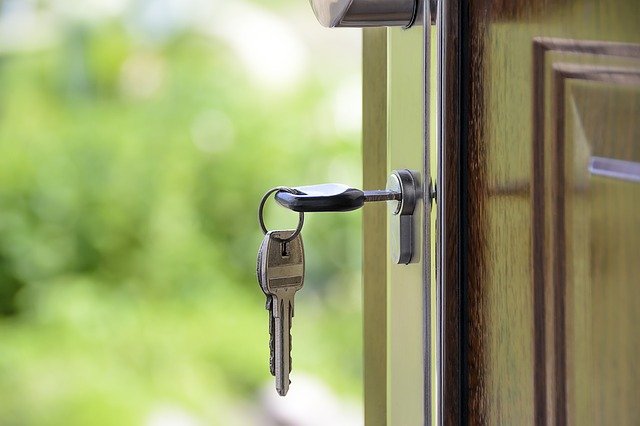
The thought of buying your first home is exciting, we know, but we want to warn you of the potential for Japanese knotweed on new build plots. It has recently come to light that property developers have been taking advantage of a loophole in the Japanese knotweed regulations, which means knotweed has been cropping up on new build housing plots up and down the country. Let us explain...
More...
